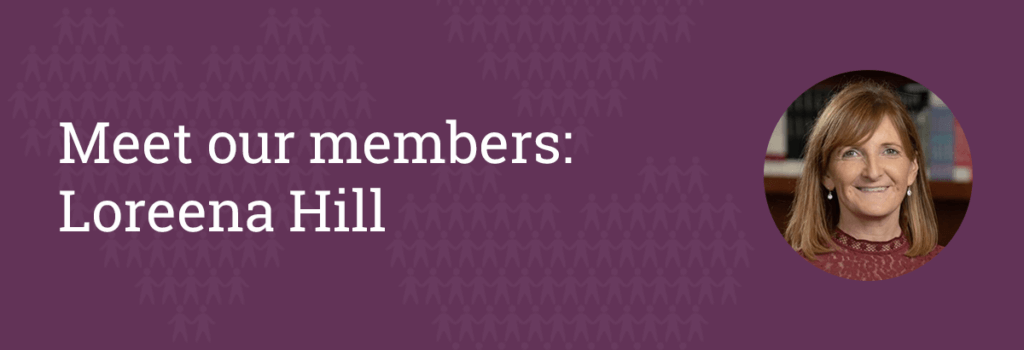
Dr Loreena Hill is a Reader in the School of Nursing and Midwifery at Queen’s University Belfast, Northern Ireland.
I’ve worked in cardiology all my nursing career. A temporary job opportunity in heart failure nursing became available in the healthcare trust where I was employed, which involved establishing a nurse-led heart failure service. From my clinical experience I was aware that many people with heart failure benefit from education to improve self-care, as well as support after discharge. Through the heart failure clinic, I collated patient experiences and audited the service and its successful outcomes. A business case was made to develop the service further, and this nurse-led heart failure service continues to this day.
My days vary, depending on teaching responsibilities. In 2023, I commenced a British Heart Foundation-funded fellowship to co-design a digital intervention for people with heart failure and an implantable cardioverter-defibrillator. Yesterday, I spent the day reviewing feedback from people with heart failure and professionals to refine the content of the app. I plan to obtain ethical approval and test this digital intervention in terms of feasibility and acceptability by the end of 2024. I continue to run one nurse-led heart failure clinic per week, which I thoroughly enjoy as education is vital for both patients and clinical staff to ensure optimal care is delivered.
There are nurse-led heart failure clinics in all healthcare trusts, with nurses reviewing and optimising guideline-directed medical therapies. Some trusts also have ambulatory units, allowing patients to receive intravenous (IV) diuretics or IV iron therapy. Many heart failure nurses work across boundaries (e.g. primary and secondary care) as well as reviewing patients in non-cardiology wards.
However, there’s a rising number of patients, and the allocated resources don’t match the increasing demand. As waiting lists get longer, more heart failure nurses are urgently needed.
I wanted to become more informed on heart failure services across Europe. The Network provides a unique opportunity to learn from other professionals to improve heart failure practice. It also helps our community affect policy as it is better to have a single, strong voice than multiple, dissipated calls for action.
It’s important to develop greater awareness of the prevalence of heart failure across Europe. This must include education on its impact on healthcare costs. To support this, I would like to see the Network lead calls for the reduction of costs for important diagnostic tools and treatments, which may involve engaging with industry to impact policy. Also, I support the Network’s recent initiatives in calling for an increase in the number of heart failure nurses across Europe. Given that nurses are an important member of the multidisciplinary team, this should remain a priority on the Network’s agenda.
There should be greater emphasis on earlier identification and prevention. There also needs to be more emphasis placed on advanced education for heart failure nurses, with robust standardisation and accredited programmes. I also feel that increasing the number of joint positions (e.g. clinical and academic) for nurses would be hugely beneficial, allowing them to be supported in their clinical role while undertaking research to improve patient care.
The increasing focus on patient involvement in developing guidelines is incredibly exciting. This is essential to ensure care delivery improves patient outcomes. I am delighted to see that the voices of people with heart failure are being heard.
The increasing use and implementation of digital technologies in heart failure care is also very interesting. There’s now evidence of the contribution digital technologies can make to the delivery and quality of the care provided, and they are also a positive step to reducing our environmental impact.
Walking the dog, baking cupcakes and trying to keep my shrubs and outside plants alive!
The Network brings together experts who are united in their passion: to improve outcomes for people living with heart failure.
We share profiles of our members to showcase what led them to work in heart failure, and find out about changes they would like to see in prevention and care.